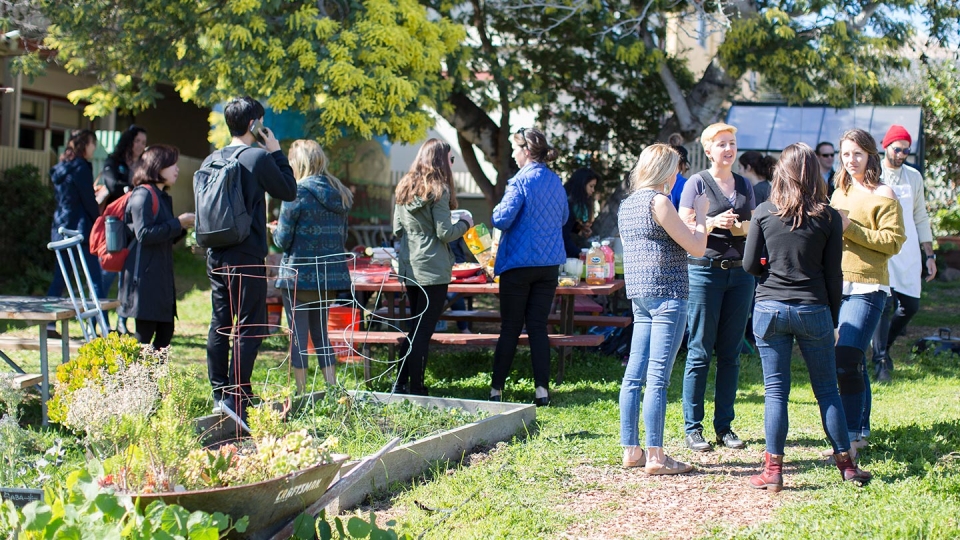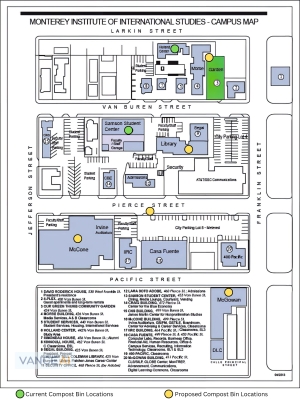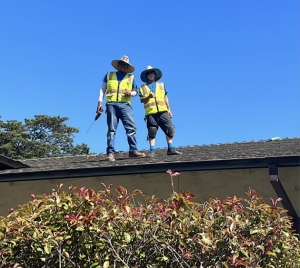Get Involved

There are plenty of opportunities to participate in sustainability at and around the Institute.
Sustainability Council
The Sustainability Council at MIIS is a student-led forum made up of students, faculty, and staff. The Council meets regularly to work on sustainability initiatives across campus. It’s a great opportunity to collaborate with students in other programs as well as faculty and staff across the Institute. Everyone is welcome to attend meetings, and if you are a student who is interested in serving as a representative for your program or a faculty/staff member who would like to participate, please reach out to one of the Sustainability Graduate Assistants! (Contact information can be found on the “Contact Us” page.)
Follow along on the Sustainability Council’s Instagram to stay up-to-date with council initiatives and events: https://www.instagram.com/miis_sustainability/
Upcoming MIIS Sustainability Events
Check here for a list of upcoming events for MIIS students, faculty, and staff celebrating sustainability!
Recent Accomplishments

More Compost Bin Locations
Aug. 25, 2023 - The Sustainability GAs have been working with Facilities Director Andrew Hernandez to increase the number of compost bins around campus. Keep an eye out for more green bins for your food waste in the coming weeks!

MIIS Moves to Solar
October 28, 2023 - It’s an exciting time for the MIIS community. We are currently installing solar panels around campus! Check out the following article about the process:
MIIS Moves to Solar, by Lily Edelman-Gold (MAIEP ‘24)
Student Environmental Clubs
Aquatics Club
The Aquatics Activities club exists to create an open forum and organization space by which students and faculty alike can organize exploration of and sport relating to the amazing marine space in and around Monterey. The club connects interested individuals and organizes learning and volunteer opportunities for those more interested in participating in various sea-related activities. Among some of the activities they organize: Scuba Diving, Snorkeling, Free Diving, Surfing, and any other activities that members care to bring up/are willing to organize events for. If you’re interested in joining this club, please email imohn@middlebury.edu or ebent@middlebury.edu.
Blue Club
Blue serves our community by making our environment safe and clean. Join us for beach and park clean-ups, yoga, and dance on the beautiful beaches of the Monterey Peninsula. Together let’s make environment protection fun! If you’re interested in joining this club, please email phow@middlebury.edu or ldohoubi@middlebury.edu.
Coffee Club
Coffee Club provides a space to take a break and learn about coffee testing promoting sensory stimulus. Fostering a platform for sharing culture through coffee, simultaneously re/learning environmental, economic, and policy issues surrounding coffee and coffee farmers.
Outdoor Recreation Club
The Outdoor Recreational Club (ODRC) of the Middlebury Institute of International Studies at Monterey (MIIS) is a collaboration of students providing outdoor leadership for weekend outings, social gatherings, and affordable rental equipment for the entire MIIS community.
Nine Lives Swap (formerly Thrift and Thrive)
Nine Lives Swap is an on-campus organization that aims to reduce waste in the fashion and clothing industry through the reuse and recycling of clothes with members of the MIIS community. Together we can make the planet better and bring together like-minded individuals. If you’re interested in joining this club and/or taking over as club president, please email opozor@middlebury.edu or jmontedoro@middlebury.edu
